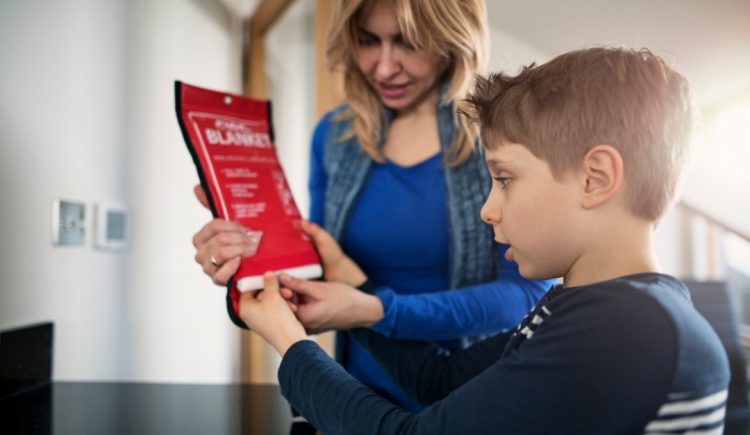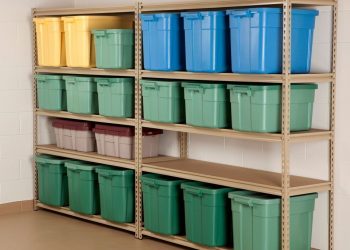Being in a building that is on fire can be a terrifying experience for anyone, but kids can feel even more overwhelmed if they don’t understand what’s happening or don’t know what to do. Here are some ways to discuss fire safety with your children.
Talk About Fire Hazards and Keep Dangerous Objects Out of Reach
Many fires start when children are playing with matches or lighters. Discussing the danger and telling your kids not to touch hazardous objects may not be enough. Store those items where your kids can’t get to them. Teach young children not to touch the stove. If necessary, use a gate to keep them out of the kitchen.
Make Sure Your Kids Know What to Do if a Fire Occurs
Walk through your home, point out smoke detectors and explain that they make a sound if there is a fire. Let your kids hear the sound so they’ll recognize it if a smoke detector goes off. Check smoke alarms monthly and replace the batteries at least once a year.
Explain that if there is a fire, everyone should get out of the house as quickly as possible. Point out ways to escape from every room in the house. Ideally, there should be two exits from each room.
Make sure that windows can be opened easily and that screens can be removed, even by a young child. Get escape ladders for rooms on the second floor and teach your kids how to use them.
Teach your children how to stop, drop and roll if their clothes catch fire. Explain that running can give the fire oxygen and make things worse.
Designate a meeting place where all family members should go after evacuating the house. Stress that once they get outside, they should not go back in the house for any reason—not to save a family member, pet or possession. If someone is trapped inside, they should tell a firefighter.
Make sure every child knows how to call 911. Tell them to call from a cell phone or from a neighbor’s home. Stress that they should always get out of the house first.
Have Fire Drills
Talking about what to do in the event of a fire can be helpful, but practicing can make it sink in more. Have your children climb out of a window and crawl out of the house blindfolded, because in a real fire, smoke may make it difficult to see and breathe.
Have fire drills on a regular basis, preferably once a month and at different times of day, including in the middle of the night. Don’t tell your kids about fire drills ahead of time. You want them to learn to spring into action quickly so they will be prepared to do so if there is a real fire.
Hold a family meeting after each fire drill to discuss what went right and ways to improve. Address any problems or areas of confusion so you’ll be better prepared next time.











